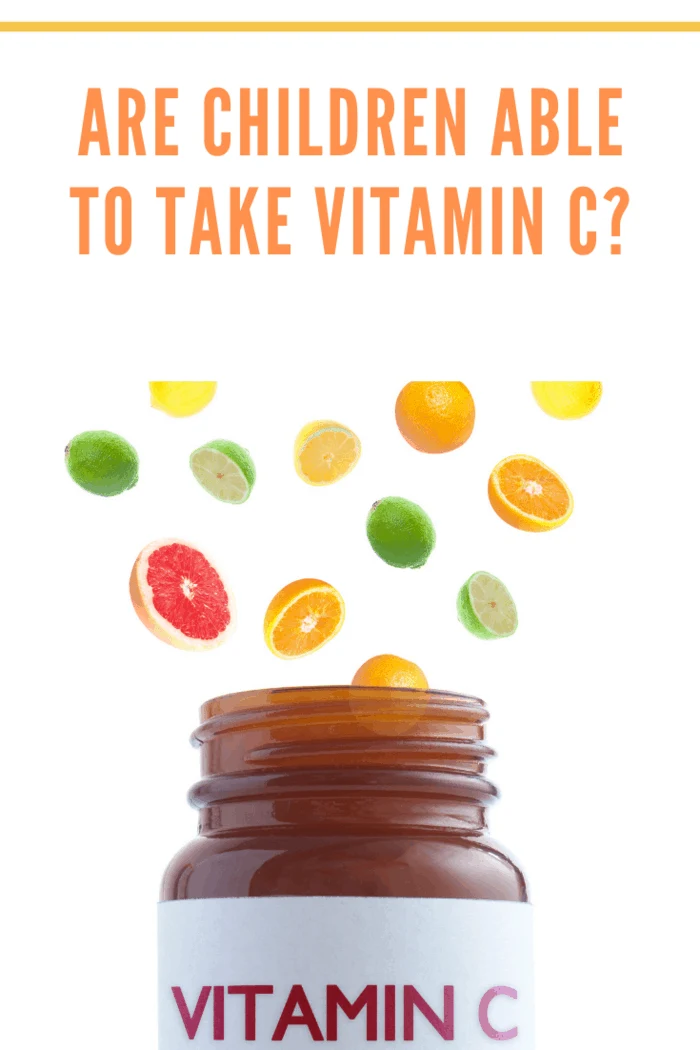Vitamin C, also identified as ascorbic acid, provides many advantages to those who take it.
Vitamin C is an antioxidant, which can neutralize the harmful effects of toxins such as mercury, lead, and other substances.
Historically, vitamin c has been used to prevent and treat scurvy and other diseases associated with vitamin C deficiency, such as diarrhea, nausea, vomiting, and diarrhea. Although vitamin C is considered an immune booster, there is no evidence taking it can prevent or treat infections.

What dosage can children take?
The Institute of Medicine’s nutrition department recommends that children between 4 and 8 take 25 milligrams of vitamin C daily. The recommended daily intake for children under 5 is 45 milligrams daily.
Infants aged 0 to 6 months need 40 milligrams per day; infants aged 7 to 12 months need 50 milligrams per day. Girls aged 14 to 18 should take 65 milligrams daily and boys 75 milliliters. The recommended RDA for vitamin C for children under one year of age is not as high as for older children but still high enough.
Healthy children exceed the specific vitamin C dose recommended by doctors to combat scurvy caused by severe vitamin C deficiency.
Vitamin C is vital, but excessive doses can harm children and cause serious health problems. (Health: Cleveland Clinic)
Do they need to take a supplement?
Children can get vitamin C from various sources, such as multi-flavored fruit and snacks, nuts and seeds, and whole grains. The best vitamin C sources are found in fruits, vegetables, nuts, and milk, eggs, and cereals.
Since the body does not produce the vitamin, children must eat foods filled with vitamin C.
Can children take Vitamin C to prevent colds?
As an antioxidant known to shorten a cold’s duration, it also helps grow and maintain body tissue. Although it is improbable, a child can get an overdose of vitamin C if he takes a specialist supplement that significantly exceeds the average daily intake of 1,000 mg or more of vitamin C per day.
For this purpose, many health departments worldwide recommend that children aged six months to 5 years be provided a daily vitamin supplement comprising vitamins A, C, or D.
It is also recommended that babies who are breastfed receive vitamin D daily.
Babies should not give vitamin supplements unless directed to do so by a doctor.
Although there is no specific recommendation for vitamin C consumption in children under four years of age, they should cover their vitamin needs with a diet that contains plenty of fresh fruit and vegetables.
Children should not be given vitamin C supplements without consulting their doctor.
Boys and 18-year-olds should have 65 milligrams, girls of the same age should have 75 milligrams, and adolescents and girls over 18 should have 75 and 75 milligrams, respectively.
Breastfeeding women should ideally take 120 mg of vitamin C daily, and pregnant women should take at least 85 mg per day to ensure their babies’ healthy development.
Human milk has a natural supply of vitamin C, so nursing babies automatically get the dose they need.
Where can you find natural sources of Vitamin C?
Good sources are:
♥ Broccoli
♥ Apples
♥ Oranges
♥ Grapes
♥ Pears
♥ Cherries
♥ Peaches
♥ Bananas
♥ Assorted nuts and berries
In addition, herbs often used for cooking also contain significant amounts of vitamin C, including thyme and parsley, and herbs such as basil, rosemary, basil leaves, oregano, chia seeds, cayenne pepper, and basil.
Do they need a supplement if they have a healthy diet?
Most people who eat a healthy diet have a good chance of getting the recommended amount of vitamin C daily.
If you don’t believe this, consider taking a multivitamin, as most of them contain more than you need for the day, and if you include healthy whole foods, you may be able to get it from your diet as a dietary supplement.
Summary
Most children who eat a healthy diet will have no problems getting the recommended amount of vitamin C daily.
Some people need to eat enough vitamin C-containing foods to meet their daily needs, but if the body does not manage to do so, they do not need to take vitamin C supplements if they are at risk of vitamin C deficiency.
